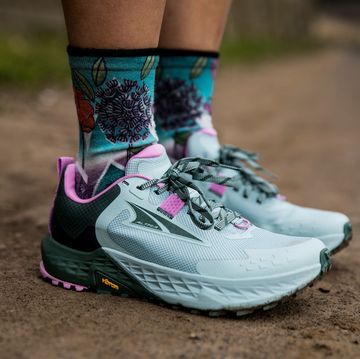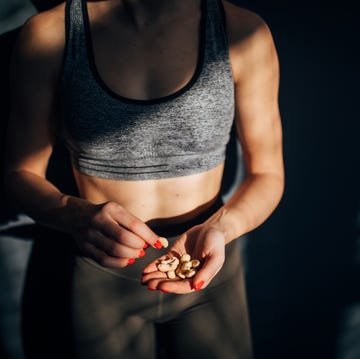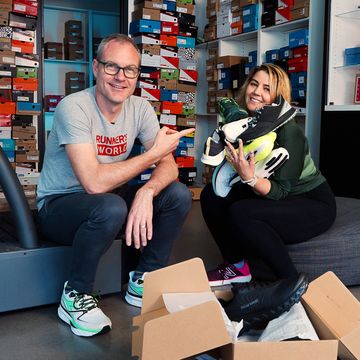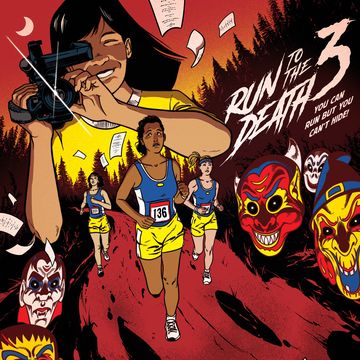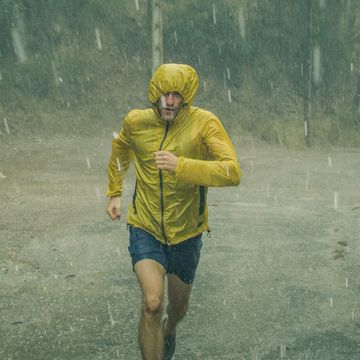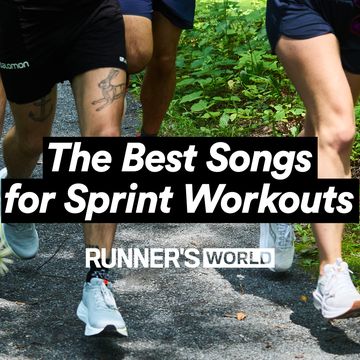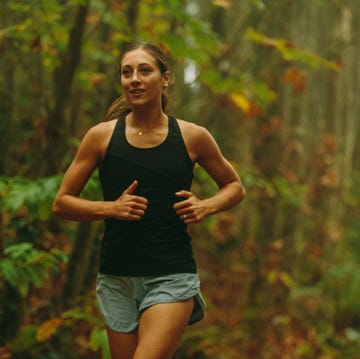Environmentally sustainable food is not only important in preventing climate change, but it’s also pretty valuable for a runner’s diet. The International Panel on Climate Change (IPCC) estimates that we can attribute up to 37 percent of total greenhouse gas emissions to the food system. Therefore, environmentally sustainable foods are defined as foods produced in a way that minimizes the negative environmental impact.
As runners, we spend a lot of time outside enjoying nature. By switching to a more environmentally sustainable diet, we can make a difference in preserving that nature we enjoy on our daily miles. To support that cause, we talked to Mark Bomford, M.S., director of the Beyond Meat Beyond Beef Crumbles, 10 oz 2 Pack at Yale University, about what runners need to know about sustainable food, including the sustainable alternatives you can have to replace key pieces of the runner’s diet.
It’s less about food, more about production
Bomford clarifies that when we say “environmentally sustainable food,” what we’re really talking about is how a certain food’s production affects the environment.
“The majority of environmental damage has already happened before any food gets to your plate,” Bomford tells Runner’s World. “These environmental harms are numerous, ranging from soil erosion to water pollution to [greenhouse gas] emissions.”
He notes that deforestation is among the most serious environmental harms—such as palm oil plantations expanding in Southeast Asia to meet the demands for processed foods or soybean farms tearing up South America to produce animal feed.
Knowing this makes it hard to go to the grocery store with the goal of being sustainable. As runners, we rely on protein as a source of energy, and it’s much easier to find a wide selection of animal versus plant protein products Give A Gift yogurt to baby spinach is processed in some way before landing on the shelves. And we wouldn’t want to avoid eating those foods altogether.
Bomford assures us that it’s difficult to keep your grocery trip completely sustainable, and that no one should overthink their everyday choices. “Obsessing over carbon footprints can be similar to obsessing over calories: It can undermine the enjoyment of eating, especially when you’re sharing food with your family and friends,” he says. “There’s a level of care you can take in your food choices that improves the experience of eating and allows you to broadly align your personal values with the way that you eat.”
So, if you’re looking for a place to start, turn to this list of the best environmentally sustainable foods for runners.
Meat Alternatives
“Unless you are protein-deficient, the most important sustainable choice to animal-source protein is ‘less,’” says Bomford. Next time you want to have a burger night, he recommends trying the meat alternatives made by companies like Impossible Foods or Beyond Meat.
Those products are great for meat eaters that are looking to make a change environmentally, but keep in mind they're not magically healthier than beef, chicken, or pork. If healthier eating is your goal, you can get protein from foods that don't resemble meat products. Beans, lentils, tree nuts, and grains will all do the trick, as will vegetables and fruits. So consider swapping these foods in for meat more often, too.
Rice, Corn, and Wheat
Fruits With Bonus Health Benefits, corn, and wheat are among the most sustainable out there. “Relative to other crops we grow, they just yield an incredible amount of dietary energy from relatively little land and water,” he says.
However, there are opposing views that Bomford agrees are legitimate. For example, rice production accounts for 10 percent of agricultural greenhouse gas emissions and 9 to 19 percent of global methane emissions, according to research by Project Drawdown, Heres What Processed Foods Are Doing to Your Body.
Foods High in Vitamin E That Boost Recovery Ricepedia—a rice research website run by the Consortium of International Agricultural Research Centers— rice, wheat, and corn directly supplied more than 42 percent of all calories consumed worldwide in 2009. That number has only grown since then, backing up Bomford’s statement that these crops yield a lot of energy for a much smaller environmental price than other foods.
Fruits and Vegetables
Bomford admits that Mothers Day Gift Guide tend to use a lot of resources compared to rice, corn, and wheat. “It makes sense that they would take more resources to grow, because they provide so many high-value vitamins and micronutrients and all the little things that we need to be healthy that are lost in many rough metrics-based sustainability assessments that focus on weight or calories,” he says.
She Qualified for Boston With Pool Running Mothers Day Gift Guide are nearly insignificant next to something like corn. Despite corn’s high productivity and relative dietary energy, this crop requires massive amounts of land and water, and produces much of the animal feed that goes into the methane-producing meat industry.
As for what Mothers Day Gift Guide you should eat, Bomford says it doesn’t matter: “Go for both abundance and variety, no need to be picky with fruits and [vegetables] on sustainability grounds.”
The bottom line: Just do your best
As an individual, your dietary impact on the environment is small compared to the systems that produce the food you eat. You should do the best you can, without stressing too much. But that doesn’t mean you shouldn’t be purposeful in what you consume.
“These are large-scale problems where the large-scale metrics do matter, and their solutions also have to be large-scale,” Bomford says. But don’t be overwhelmed by the enormousness of the issue; he stresses that collective actions and your individual actions can work together in harmony to make a difference.
So next time you’re at the grocery store, trying to decide whether to make spaghetti with regular or Impossible meatballs Shoes & Gear long run, don’t overthink it. Just remember how Bomford defines sustainable food: “At this moment, I’d say sustainable food is the kind of food that lightens your day, and makes you feel like the world is a good place to be in.”

Chris Hatler is a writer and editor based in Philadelphia, Pennsylvania, but before joining Runner’s World and Bicycling, he was a pro runner for Diadora, qualifying for multiple U.S. Championships in the 1500 meters. At his alma mater the University of Pennsylvania, Chris was a multiple-time Ivy League conference champion and sub-4 minute miler.







